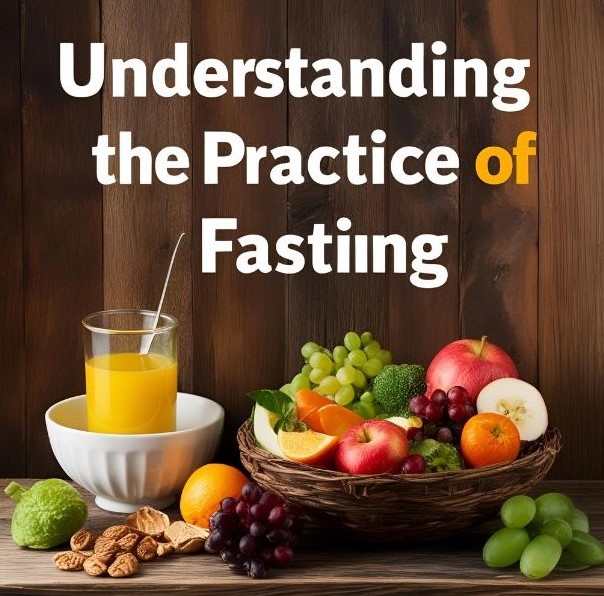Understanding the Practice of Fasting
Fasting, known as SAWM, is a sacred practice observed by Muslims worldwide.
This short video clip explores the essence of fasting, its spiritual significance, various types, and the conditions and obligations associated with this fundamental pillar of Islam.
Fasting in Islam involves abstaining from nine specific activities from dawn till the dusk (Maghrib) time. This includes refraining from eating, drinking, and other bodily appetites with the sole intention of drawing closer to Almighty God.
While fasting is a cornerstone of Islam, it is not exclusive to the Muslim faith. Various religions, including Christianity, Confucianism, Hinduism, Judaism, and Taoism, have embraced fasting as a means of spiritual discipline and self-control for centuries.
The holy Quran explicitly prescribes fasting as a means for believers to develop God-consciousness. In Chapter 2, Verse 183, Allah addresses the believers, by saying:
O you who believe, fasting is prescribed for you as it was prescribed for those before you, that you may develop God-consciousness.
Fasting is a spiritual exercise aimed at overcoming worldly desires within reasonable limits. The Quran asserts that self-control over desires is crucial for salvation, making fasting a powerful tool for Muslims to master their appetites and prevent becoming slaves to them.
Types of Fasting:
Within Islam, there are four distinct types of fasting:
- Obligatory (Wajib) - such as fasting during the holy month of Ramadan.
- Supererogatory (Mustahab) – Recommonded ones such as fasting in the months of Rajab and Sha’ban.
- Reprehensible (Makruh) - discouraged such as fasting on the day of Ashura.
- Prohibited (Haram) - forbidden fasting on the days of Eid Fitr and Eid al-Adha.
Conditions for Obligatory Fasting:
Fasting is only obligatory, when certain conditions are met. Such as adulthood, sanity, physical strength, consciousness, non-traveling status, and not being in a state of menstruation or postpartum bleeding. Fasting must also not pose a risk to one's health or be excessively difficult.
Invalidators of Fasting:
There are nine actions, which invalidate fasting:
- Eating and drinking.
- Sexual intercourse.
- Deliberately causing seminal emission (masturbation; al-’istimna’).
- Deliberately ascribing something falsely to God or the holy Prophet (p.b.u.h.) or any of infallibles.
- Inhaling a dense cloud of suspended dust (when it reaches the throat).
- Fully submerging the head under water.
- Deliberately remaining in the state of janabah or haydh (menstruation) or nifas (Postpartum period) until the dawn.
- Enema using fluid.
- Deliberately vomiting.
Disliked (Makroh) acts for a Fasting person:
Several things are disliked for someone fasting, including:
- Pouring medicine into the eyes or applying kohl to the eyes if its taste or smell reaches the throat.
- Engaging in any activity that causes weakness, such as drawing blood or taking a bath.
- Inhaling snuff if one is unaware that it reaches the throat, and if known to reach the throat, it is not permissible.
- Smelling fragrant plants.
- A woman immersing herself in water.
- Using an enema.
- Wetting a garment that is on the body.
- Drawing a tooth or anything that causes blood to come out of the mouth.
- Brushing the teeth with a wet piece of wood.
Additionally, it is disliked for a person, without intention, to kiss his wife's genitals or engage in any act that arouses sexual desire. If the intention is to ejaculate, and ejaculation occurs, the fast becomes invalid.
Exemptions from Fasting:
Certain individuals, such as the sick, pregnant, menstruating, nursing, or those traveling, are exempt from fasting. Fasting exemptions must be compensated when circumstances permit.
Breaking the Fast and Consequences:
Unintentional breaks in fasting require continued observance for the rest of the day, while intentional breaks necessitate repentance, compensation, and facing the consequences outlined in Islamic jurisprudence.
Fasting in Islam is a multifaceted practice that goes beyond abstaining from food and drink. It is a spiritual journey, an exercise in self-discipline, and a means of drawing closer to the divine. Understanding the various types, obligations, and conditions associated with fasting enhances one's appreciation for this fundamental aspect of Islamic worship. For further exploration of fasting, individuals are encouraged to refer to authentic sources such as www.findtruth.co.uk.











